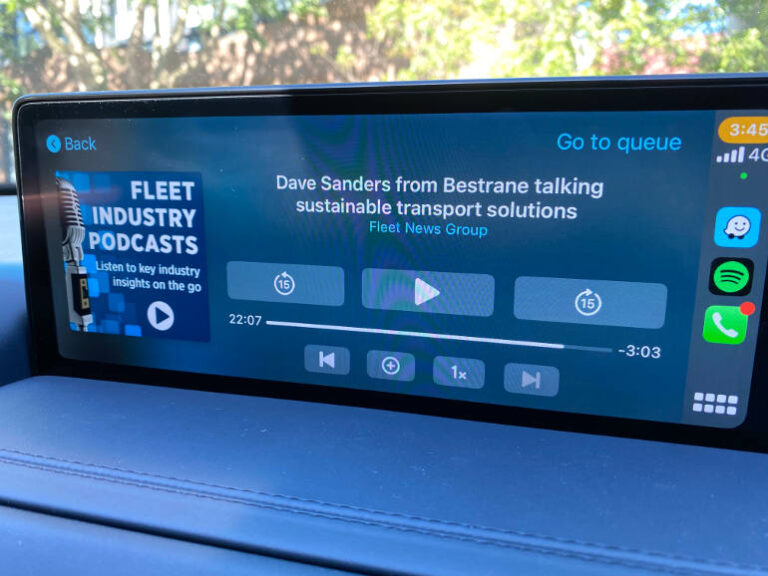In this Fleet News Group podcast with host Caroline Falls, Dave Sanders, co-founder of Bestrane, talks about the escalation in interest in sustainable transport solutions and how his company which has eliminating waste at its heart helps transport and logistics groups.
“If I look at Origin Energy, for example, who are right in the crosshairs of the sustainability issue. Right now, they’re in an industry that is struggling to understand what it means to be sustainable in supplying gas … From a fleet perspective, they’ve got lots of vehicles running around providing a service to a lot of Australia that doesn’t have a great alternative right now; that may not be the case in the future. So from a sustainability perspective, they’re trying to understand how can we do more with a minimum fleet necessary. And that’s really the sort of services that Bestrane provide, not only on a one- time basis, but more importantly, over a much longer period of time.”
Sanders said conversations about improving a company’s sustainability have reached board level now.
“It’s definitely an item now. It’s an agenda item. It’s a board item actually. So whatever decisions have been made, how it affects the sustainability measures or objectives is something that gets talked about all the time. In our route optimization practice — that’s code for doing more with less — can I do the same work with three less vehicles? Or can I deliver a different type of service to reduce my overall kilometres or hours on the road? All of those kinds of sustainability measures are definitely being recorded now,” said Sanders.
Bestrane provides consulting, solutions and ongoing service to customers like Origin Energy, Miele, JB Hi-Fi, Australia Post and Coca Cola.
The business recently spun out a new business unit — Mobile Dock,basically a booking service for loading docks.
“One of the advantages of having a long-term relationship with customers is that you get to almost have a seat at the table around some of the practical day-to-day problems. One of those was this, this little bit of dirt that is in the front of a lot of warehouses called a loading dock. And it turns out that that little bit of dirt is at the heart of a vast network of supply chain partners, whether they be carriers or suppliers, or drivers, buyers on the other side, or perhaps their own customers.”
With Mobile Dock, by booking in a time to approach the loading dock, congestion and idling of vehicles is minimised — with the impact of saving time and emissions for fleets.
Sanders talks about optimisation and how it’s a term that’s widely used but may mean different things to different businesses, which is where his consultancy cap helps.
“The real question is what’s optimum? What does optimum mean to each organisation? And there’s not one answer, the reality is I can give hundreds of optimal solutions, depending on what you’re trying to achieve. Am I trying to minimise kilometres? Am I minimising the fleet? Am I trying to maximise the service? All of these policy constraints are actually the hardest ones to sort of understand,” said Sanders.
He also talks about circular economy, reverse logistics and artificial intelligence .
Bestrane is also the sole licensee of Canada-based Descartes telematics. It also has relationships with other fleet market providers including Geotab.
“One of the fundamentals in setting Bestrane up was a recognition that there’s lots of smart technologies and applications out there right now. So part of our Bestrane model was to identify who they were, develop a relationship with them so that we could essentially market, sell, implement, and support whatever we did on a long-term basis.”
The Fleet New Group podcast is available on the Spotify and Apple Podcast apps. It is published the first and third Mondays each month.






